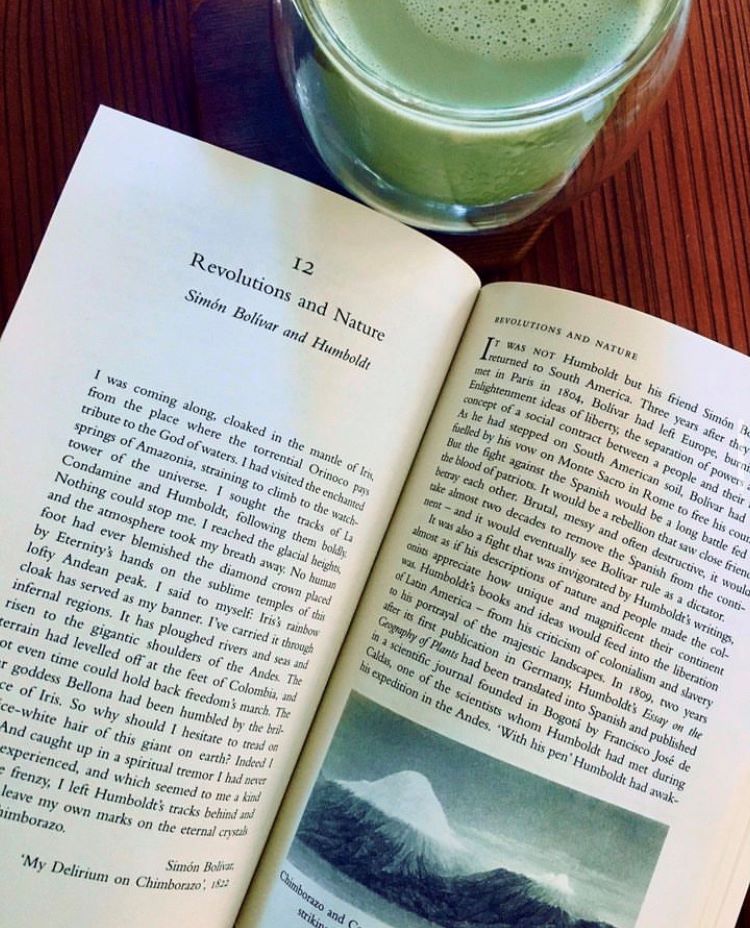Media, largely social media, feels kind of like a trap with no purpose now. It’s getting harder to consume content without being influenced to want more. That is, for example, when creator after creator shows themselves buying hundreds of dollars worth of new stuff all the time, it’s difficult not to want to get those things.
It’s normal to want things, but at this point, it feels excessive. Especially in the face of having only a handful of years before the damage we’ve done to the planet is irreversible. We are constantly trying to be sold the idea that consuming at the rate we are is a good thing, yet feeling like we have to buy something just because someone on social media said we need it feels… off.
No one is perfect, everyone consumes, but we live in a world where overconsumption is normalized. You don’t necessarily need to be a minimalist (unless that’s your vibe!), but we should all be purposeful. Purposefulness brings many rewards, one of which is bringing about meaningful change in an approachable and sustainable way.
Purposefulness helps reclaim autonomy.
The phrase “Do what makes you happy” is no longer an introspective into personal values and likes. Now, it’s overused by companies to sell more stuff. It’s an addictive cycle of always looking towards the next product that’s going to supposedly “change your life”. Instead of healthy behaviors that will actually bring meaning and fulfillment, we’re told to only focus on what’s going to come next.
Overindulging lessens satisfaction though, only furthering our desires to have more. Overconsumption, therefore, takes away our autonomy as we act like passive characters in our story. The main character of our lives is the stuff we buy and surround ourselves with, not us. But we don’t need to do this. Comparison is a thief of joy and normal people can’t afford $500 fake Christmas trees just because it’s trendy.
Deliberate choices lead to specific results.
That is, actions both big and small can bring about the meaningful change you desire. In a time where bad news is overshadowed by performative consumption, purposefulness is a tool to help follow your convictions and live the life you want. Purposeful actions help you form habits that will help you be more intentional every day.
A luxury of our modern world is convenience, we’re told that easier is better for the sake of efficiency. But convenience isn’t always necessary, we shouldn’t live life constantly striving to be streamlined. Don’t get me wrong, I love the convenience of the modern world. But, convenience can hold us back.
The true cost of convenience adds up to more than meets the eye. For many, that means working more to afford this convenience despite the cost being offset by someone else due to exploitative practices. Therefore, convenience often eliminates time for creativity and purposeful decision-making.
Convenience is the opposite of consciousness. We no longer have to put thought into everyday actions, yet when you acquire something too quickly it gets viewed as disposable. Convenience is great, but it shouldn’t be the center of our decisions. So, focus on deliberate choices to slow the pace. Introducing purpose in this way helps you determine what’s essential so you get the right things done, instead of constantly trying to do more.
Purposefulness causes a chain reaction.
More specifically, being purposeful helps connect actions to ideas. You start with an idea of what you want to work towards then you develop an understanding of why you’re working towards that. As a result, you’ll be able to make the right choices to carry out that vision. But in the end, the essence of being purposeful is to simply be mindful.
Mindset is coupled with personal values and practices that work together to simplify your life, otherwise known as living simply. That can range from minimalism to choosing mindful habits like journaling or yoga. The key is to check in with yourself regularly and balance what you want with what you need.
But, like any habit or change, consistency is key. To remain consistent, don’t fight the old just build the new. Embrace everything life has to offer, including the good and the bad, but maintain an aura of gratefulness and romanticism. Progress isn’t created with pessimism, but keeping things actionable through intentional living fosters growth and hope. Through optimism and reclaiming our autonomy, we can reduce overconsumption and bring greater meaning to our lives.
Live, don’t just exist.
Living is actively participating, being conscious of who we are, and being present for the experience. It requires purposefulness, but also continuous learning and growth. Instead of focusing on monetary things that do more harm than good, focus your time and energy on what you value most. It’s time to stop going through the motions to become more in tune with ourselves.
Intentionality sounds complicated, but it’s not. Through mindfulness, you learn introspection. It’s a mindset and skill that gives purpose to your actions. An easy start to this is to simplify the complicated areas of your life to not fall into the fast-moving materialism trap. Find your worth outside of materialistic things! You are enough. You don’t need more things to be whole, valued, or loved.
Bring power to your voice by tuning into yourself. Realize you are enough so you don’t overwork yourself, overindulge, or crave what you don’t need. Empower yourself to turn down things that don’t suit you or say yes to things that do. Inherent worth cannot be bought or priced, despite what ads may tell you. Instead, sink into a feeling of gratitude because that brings more abundance and fulfillment.
Gratitude turns what we have into enough.
Purposefulness allows you to be present and helps release you of aimlessness and hopelessness. Practice mindfulness and gratitude daily. You don’t need to do much, even 5 minutes of being with your thoughts helps. When we aren’t in touch with our mind and body, we become reactive and are unable to assess incoming information or feelings. This hinders proactivity and is the opposite of bringing intent and purpose.

Overconsumption is destroying us, but there’s hope.
We’ll always have responsibilities, but you can create an environment where you can succeed. Bringing purpose and mindfulness allows you to choose the obligations you allow in your life and changes how you perceive them. Make things easier for yourself and eliminate distractions or triggers that can hinder your success.
Focus on what you can control like what you buy, eat, read, or watch. Get rid of unnecessary things, habits, or activities. Set boundaries for yourself and focus your time and energy on what you value the most. When you go to do or purchase something first think, “Is this worth my time and resources?”. Make time for yourself and leave space for discovery and peace.
Consumer culture won't bring happiness.
Circling back to social media, I want to really impart the idea that consumer culture isn’t inherently fulfilling. Social media should only be a tool used to connect, not to compare. This comparison feeds into our unhealthy belief that we should always be wanting more.
This sort of consumer culture is inherently bad for our mental health and the environment. It doesn’t serve us, so we need to learn how to navigate away from it. We can still consume content, but we must be aware of the problem and hold our values in something that isn’t what we can buy.
Life isn’t a competition, it’s art.
Let’s stop trying to compete with one another and instead embrace the artfulness of life. Just like art, life presents opportunities to create, transform, and explore. Shift your values towards growth and exploration instead of consumerism and detachment.
Embrace mistakes and imperfections, but keep yourself centered. Without mistakes, there’s no depth to your life. Everyone goes through episodes of self-growth and it’s not a linear path. Fear of failure, rejection, and comparison are limiting you, but purpose leads to long-term change. Make every day count and don’t hold yourself back by focusing on materialism.
After all, having more things won’t fix all of our problems. It won’t make us happier to create a perfectly curated materialistic life. We can’t control everything around us, but we can shift our focus for more peace and meaningful change within ourselves and society.

